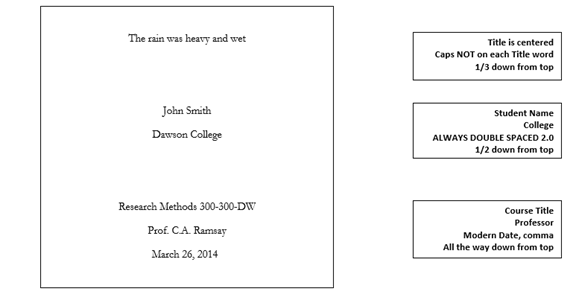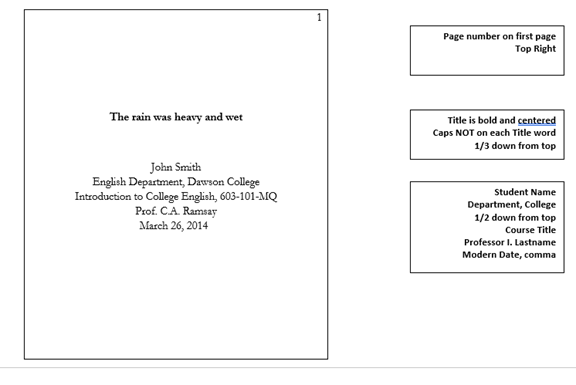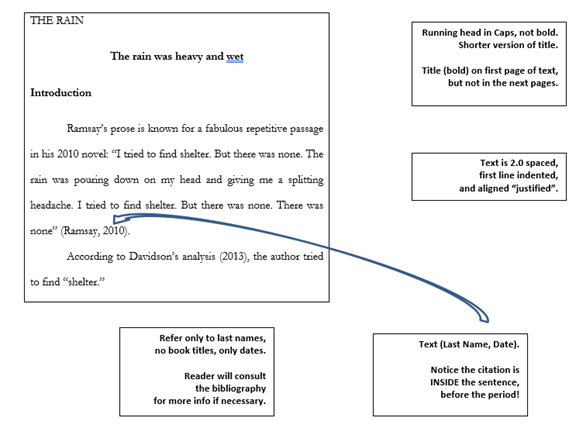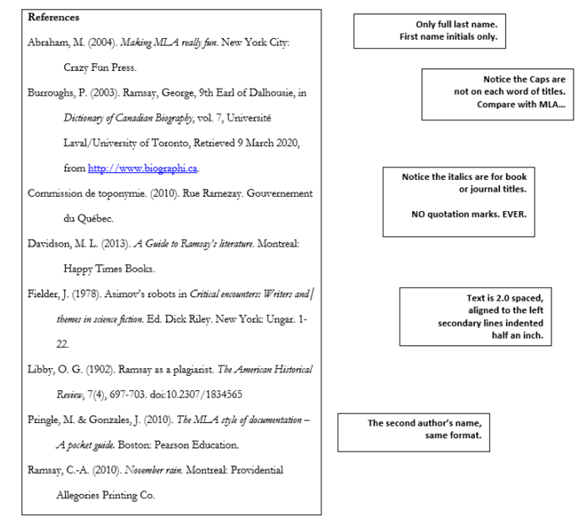APA Style
Why Should I Care?
Some journals (and academics in that same field) use the APA style, which is useful to know.
The Basics
APA stands for American Psychology Association. This group of psychologists share a common style for the publishing of papers, which are scientific, and usually based on experiments. The cover page is usually separated from the rest of the paper, so that the revision process is done in a blind fashion. The author’s name must not be printed on the pages other than the cover page.
It is known for a short citation, without first names. In French, this style is called “Auteur-Date”. The style is used by many economists, political scientists, sociologists, and other social science disciplines.
Here is the complete set of guidelines for the Dawson-approved APA style.
http://www.dawsoncollege.qc.ca/academic-skills-centre/handouts/
Cover Page Format
This is an older version of the APA cover page.
This is the most recent version of the APA cover page.
Text Format
The second and subsequent pages follow common formatting.
Here are some variations of quotes cited in APA style.
Version 1
According to Johnson (2013), the best thing since fried bread is “sliced bread.”
Version 2
According to a leading scientist, fried bread is great, but the best thing since that was invented is “sliced bread” (Johnson, 2013).
Version 3
Johnson likes to say (2013) that the best thing since fried bread is “sliced bread.”
Bibliography Format
Last Name, Initial. (YYYY). Book Title. City: Publishing Company.
This is an example of a list of sources. Some of these sources are fake, but many are real.
Dos
- Use the & for the last author.
- Indent the second line by half an inch.
- Italics for Book title, and Journal Title.
- Use a second line only if needed.
Don'ts
- Change the order of the authors, being first author matters.
- If the author is an organization, do not split the name with a comma.
- Use italics for article title.
- Use Enter before the end of the reference.




